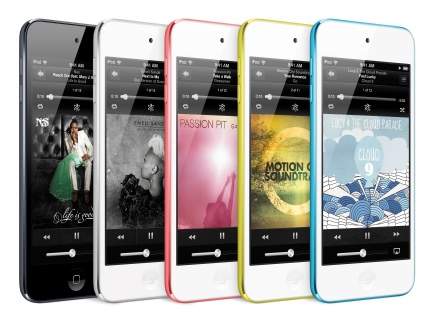The influx of innovative and advanced features on smartphones and tablets, such as high resolution graphics capabilities, has created a common perception that portable gaming consoles will vanish in the near future.
However, ARCchart (www.arcchart.com) sees a healthy PGC market continuing to exist and expects that the overall market — including both game titles and console sales — will be worth US$24 billion by 2016. That’s not to say that the iPhone, iPad, iPod touch and similar devices aren’t affecting the PGC market.
In July Nintendo President Satoru Iwata told the UK newspaper , “The Independent,” that competition from the iPad and iPhone hasn’t had a major effect on the success of Nintendo’s portable devices.
“I don’t think this is a central factor, I think it’s much more about our lack of ability to release software in a timely matter that will motivate people to go out and buy our gaming hardware,” he said, noting that Nintendo must offer unique experiences only possible on its hardware to succeed against smartphones and tablet. “But obviously smartphones and tablets have changed the environment that we operate in and we can no longer offer some kinds of games experiences that couldn’t also easily be offered on a smartphone, so we need to differentiate and offer something exclusive. I think if we can offer exclusive entertainment that cannot be replicated on other devices then we’ll have the chance to survive.”
On the other hand, a study by ABI Research (www.abiresearch.com) shows that more portable gamers are looking to smartphones and tablets for their gaming needs rather than handheld gaming devices like Nintendo’s 3DS and Sony’s Vita.
According to the study, both Nintendo and Sony are expected to ship over 38 million portable gaming devices in 2013. After that point, unit shipments are expected to continue declining slightly and then remain “flat” through 2017. The 38 million-unit shipments in 2013 is a dramatic fall from the 47 million-unit shipments in 2008.
As noted by “Daily Tech” (www.dailytech.com), expert analysts say that smartphones and tablets are moving in on this sector, offering mobile games that are much cheaper right on the devices they use on a daily basis. However, core gamers will still keep Nintendo and Sony’s gaming sales afloat.
“Mobile devices will compete with dedicated handheld gaming devices, but select consumer segments like core gamers and those individuals who do not want or have a smartphone or tablet will still provide some demand,” says Michael Inouye, senior ABI analyst. “The addition of mobile gaming is not necessarily a zero sum situation; in fact, many feel there is plenty of room in the gaming market for both portable and mobile gaming.”
The mobile and tablet markets have increased consumers’ price sensitivity. First party developers and key game franchises will be vital cogs for the industry in the future, since hardware alone is not going to cut it given the shorter upgrade cycles for mobile devices,” Inouye notes.
— Dennis Sellers


